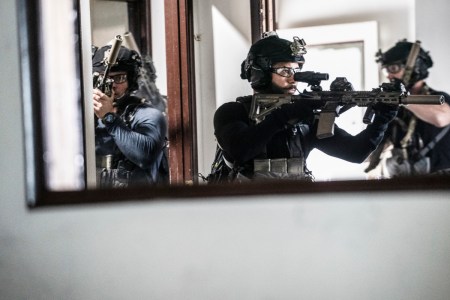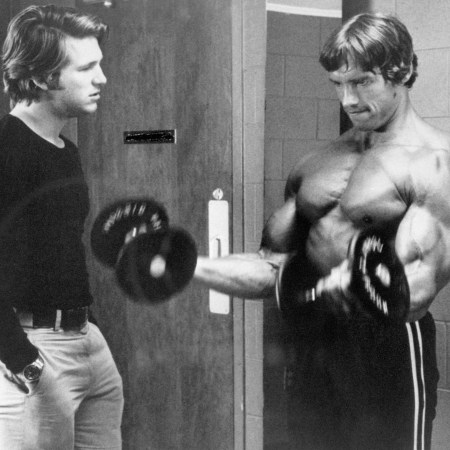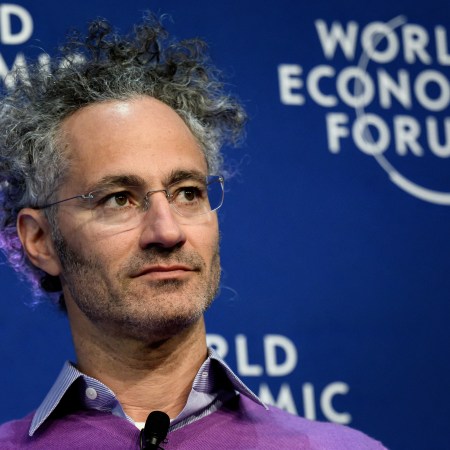If nothing else, Hollywood’s controversial superhero era has transformed countless, self-professed schlubs and klutzes into lean, mean fighting machines. Chris Pratt, Kumail Nanjiani, Brie Larsen and other actors have dropped selfies heard ’round the world while training for roles over the last few years.
But the modern action hero needs more than rippling muscles or trusty flexibility to get through a shoot — on the contrary, skillsets are getting surprisingly niche…and starting to sound more like superpowers.
Consider: the winter’s two biggest blockbusters (Avatar: Way of Water and Black Panther: Wakanda Forever) both asked cast members to breathe underwater for minutes at a time. In the latter, Winston Duke and Tenonch Huerta each managed to stay submerged in pools for over five minutes at a time. And in the first of the Avatar sequels, Kate Winslet held her breath for an astonishing, moviemaking record of seven minutes and 14 seconds.
What It Takes to Convincingly Play a Navy SEAL on Television
Neil Brown Jr. on the art of acting with 40 pounds on your backActing underwater isn’t completely new. Winslet, after all, bested a time set by Tom Cruise in the filming of Mission: Impossible – Rogue Nation (which was filmed in 2014). But that doesn’t make the length of these Navy SEAL-esque marks — or the regularity with which they’re now being set (Sigourney Weaver, for reference, also reached six minutes during the Avatar filming) — any less stunning.
According to The Washington Post, the ocean is the next great frontier in fantasy franchises: “Underwater realms have overshadowed space and other alien settings for filmmakers trying to take seen-it-all audiences out of their element.” It helps, too, that James Cameron has spent a decent chunk of his life now perfecting so-called underwater performance capture. Monologues in the Mariana Trench? Perhaps. Subaqueous stories once reserved for animation studios can now go live-action.
Aspiring action stars don’t necessarily need a propensity for underwater breathing in their toolshed, a la classically trained actors with a mastery of horse-riding or French, but they will need to be brave, persistent and tough as nails. Even the experts call underwater training “bananas dangerous.”
And who are those experts, anyway? Freelance free-diving shamans, basically, or spearfishers, who train actors to retain their composure as oxygen levels dip. Margot Robbie (who needed to pick up the skill for her role as Harley Quinn) explained the process in her Hot Ones interview a couple years back: “[He] teaches you how to take a big breath and expand your diaphragm and all that stuff. Really the most important thing he teaches you is what happens when your body gets deprived of oxygen, and once you know, it’s not that scary when it starts happening. He’s like ‘so, you’ll have convulsions when you get to this point.’ Then you’ve got to, like, 30 or 40 seconds after that, so just ride out the convulsions, and they’ll get worse, and this will happen.”
Convulsions! Those’ll put push-ups and pull-ups into perspective. But it’s true — over the course of a month, movie stars are now taught to view their oxygen supply like the gas gauge on a car dashboard. No matter how dire it looks, there’s always a little more left in the tank.
It’s an interesting angle, and an unheralded one at that. As much fun as cynical cinephiles have claiming that superhero actors are all obliques and faux-clever quips, imagine having to act (or even improvise) when your brain is convinced you’re about to die? That’s an impressive feat, no matter what world you’re in.
Thanks for reading InsideHook. Sign up for our daily newsletter and be in the know.



















